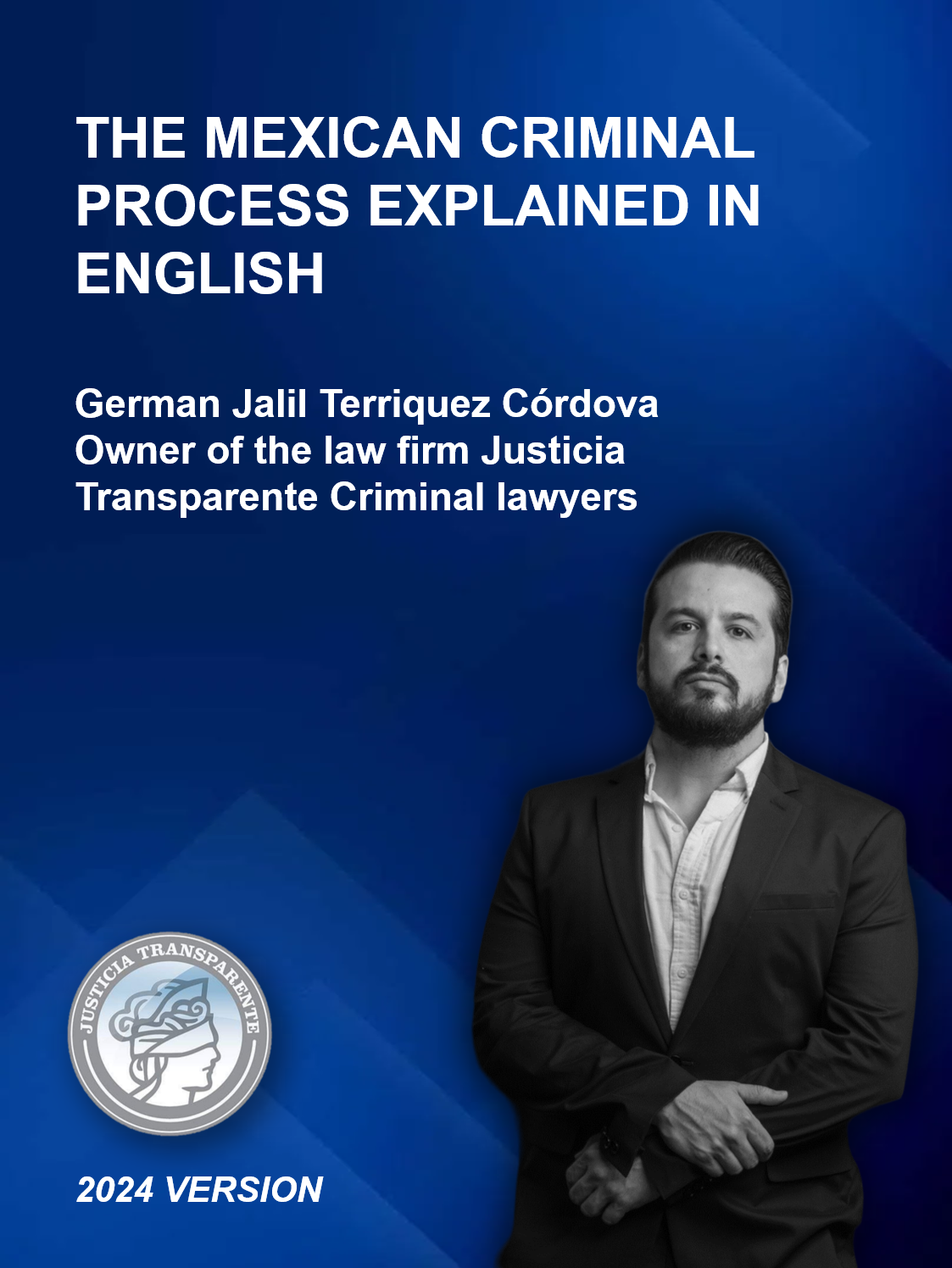In what cases can the law of amnesty for drug crimes?
In what cases can the law of amnesty for crimes against health apply? On this occasion we will talk to you about the requirements that are necessary to meet in order to be candidates for the application of the amnesty law, in this case we do not assure that the corresponding authority will authorize the amnesty, however we will tell you what the requirements are to be able to start your process.
1.What are the requirements to request an amnesty?
The crime must be federal, that is, the person must have been investigated by the Attorney General’s Office and that the process be carried out in federal courts. The person must not be a repeat offender regarding the crime he is accused of. He may be still in process or already have a conviction.
2. Where do we find this assumption established?
We can find it in article 1, section III of the Amnesty Law, which establishes the following:
Article 1. Amnesty is decreed in favor of the persons against whom a criminal action has been brought, who have been prosecuted or have received a final judgment, before the federal courts, provided that they are not repeat offenders with respect to the crime for which are indicted or sentenced, for the crimes committed before the date of entry into force of this Law, in the following cases:
Accused a relative of a crime in Mexico? Do you need to know if it is a crime to bring weapons into Mexico? Do you need to know if it is a crime to bring marijuana into Mexico? The prosecutor is accusing me of having committed a crime that I did not commit? Has your loved one been in jail in Mexico for years?
If you are in one of these situations, hire an online consultation.
Do you want to avoid an arrest warrant against you in Mexico?
III. For crimes against health referred to in articles 194, sections I and II, 195, 195 Bis and 198 of the Federal Penal Code, provided that they are of federal jurisdiction, in terms of article 474 of the General Health Law.
Articles of the Federal Penal Code.
Visit our online store
One of our products can help you
Article 194.- A prison term of ten to twenty-five years and a fine of one hundred to five hundred days shall be imposed for those who:
I.- Produce, transport, traffic, trade, supply even free of charge or prescribe any of the narcotics indicated in the previous article, without the corresponding authorization referred to in the General Health Law;
For the purposes of this section, by producing it is understood: to manufacture, manufacture, elaborate, prepare or condition some narcotic, and by trading: to sell, buy, acquire or dispose of some narcotic.
Supply is understood to be the direct or indirect material transmission, for whatever reason, of the possession of narcotics.
The trade and supply of narcotics may be investigated, prosecuted and, where appropriate, sanctioned by the authorities of the common jurisdiction under the terms of the General Health Law, when the assumptions of article 474 of said ordinance are met.
II.- Enter or extract from the country any of the narcotics included in the previous article, even if it is momentarily or in transit.
If the introduction or extraction referred to in this section is not consummated, but it is clear from the acts performed that this was the agent’s purpose, the applicable penalty will be up to two-thirds of that provided for in this article.
Article 195.- A five to fifteen year prison term and a one hundred to three hundred and fifty day fine will be imposed on anyone who possesses any of the narcotics indicated in article 193, without the corresponding authorization referred to in the General Health Law, always and when that possession is for the purpose of carrying out any of the conducts provided for in article 194, both of this code.
Possession of narcotics may be investigated, prosecuted and, where appropriate, sanctioned by the authorities of the common jurisdiction in the terms of the General Health Law, when the assumptions of article 474 of said ordinance are met.
When the accused possesses any of the narcotics indicated in the table provided for in article 479 of the General Health Law, in an amount equal to or greater than that resulting from multiplying those referred to there by a thousand, it is presumed that the possession is intended to commit any of the behaviors provided for in article 194 of this code.
Article 195 bis.- When, due to the circumstances of the fact, the possession of any of the narcotics indicated in article 193, without the authorization referred to in the General Health Law, cannot be considered destined to carry out any of the conducts to which Article 194 refers, a penalty of four to seven years, six months in prison and a fine of fifty to one hundred and fifty days will be applied.
The Federal Public Ministry will not proceed criminally for this crime against the person who possesses:
I. Medicines containing narcotics, the sale of which to the public is subject to special acquisition requirements, when, due to their nature and quantity, said medicines are necessary for the treatment of the person who possesses them or of other persons subject to custody or assistance. who has them in their power.
II. Peyote or hallucinogenic mushrooms, when due to the amount and circumstances of the case it can be presumed that they will be used in the ceremonies, uses and customs of indigenous peoples and communities, thus recognized by their own authorities.
For the purposes of this chapter, possession is understood to be the material possession of narcotics or when these are within the radius of action and availability of the person.
Possession of narcotics may be investigated, prosecuted and, where appropriate, sanctioned by the authorities of the common jurisdiction in the terms of the General Health Law, when the assumptions of article 474 of said ordinance are met.
Article 198.- To those who, dedicating themselves as their main activity to the work of the field, sow, grow or harvest marijuana plants, poppies, hallucinogenic mushrooms, peyote or any other vegetable that produces similar effects, on their own, or with financing from third parties When there is little education and extreme financial need, he will be imprisoned from one to six years.
The same penalty will be imposed on those who, in a property owned, possessed or possessed, consent to the sowing, cultivation or harvest of said plants in circumstances similar to the previous hypothesis.
If in the conducts described in the two previous paragraphs the circumstances that are specified do not concur, the penalty will be up to two-thirds of that provided for in article 194, as long as the sowing, cultivation or harvest is done with the purpose of carrying out any of the behaviors provided for in sections I and II of said article.
If that purpose is lacking, the penalty will be two to eight years in prison. If the crime is committed by a public servant of a police corporation, he will be imposed, in addition, the dismissal of the public job, position or commission and he will be disqualified from one to five years to perform another, and if the crime is committed by a member of the Mexican Armed Forces in retirement, reserve or active status, he will be imposed, in addition to the indicated prison sentence, the definitive discharge from the Armed Forces to which he belongs and he will be disqualified from one to five years to hold office or commission public.
The sowing, cultivation or harvesting of marijuana plants will not be punishable when these activities are carried out for medical and scientific purposes in the terms and conditions of the authorization issued for that purpose by the Federal Executive.
Article of the General Health Law.
Article 474.- The authorities of public security, prosecution and administration of justice, as well as the execution of sanctions of the federative entities, will know and resolve the crimes or will execute the sanctions and security measures referred to in this chapter, when the The narcotics object of the same are provided for in the table, as long as the amount in question is less than that resulting from multiplying the amount of those provided for in said table by a thousand and there are not enough elements to presume organized crime.
Federal authorities will hear crimes in any of the following cases:
I. In cases of organized crime.
II.The amount of the narcotic is equal to or greater than that referred to in the first paragraph of this article.
III. The narcotic is not included in the table.
IV. Regardless of the amount of the narcotic, the Public Ministry of the Federation:
a) Prevent knowledge of the matter, or
b) Request to the Public Ministry of the common jurisdiction the remission of the investigation.
The federal authority will hear the cases provided for in sections II and III above, in accordance with the Federal Penal Code and other applicable provisions.
In the cases of section IV of this article, this chapter and other applicable provisions shall apply. For the purposes of the provisions of subsection b) of section IV above, it will be sufficient for the Public Ministry of the Federation to request the competent authority of the federative entity to refer the corresponding investigation.
The proceedings carried out up to that moment by the authorities of the federative entities will be fully valid. In the instrumentation and execution of the police operations carried out to comply with said obligations, the authorities will coordinate in the terms established by the General Law of the National Public Security System and other applicable provisions.
The Public Ministry of the Federation may request that the public security authorities of the federative entities send it reports related to the investigation of the crimes referred to in this chapter.
The Public Ministry of the federative entities must timely inform the Public Ministry of the Federation of the beginning of the preliminary investigations, so that it has the necessary elements to, where appropriate, request the remission of the investigation in terms of the fraction IV subsection b) of this article.
In the cases referred to in the second paragraph of this article, the Public Ministry of the common jurisdiction may carry out the corresponding preliminary investigation procedures and shall forward to the Public Ministry of the Federation, within three days of having concluded them, the act or minutes drawn up and everything related to them.
If there are detainees, the referral will be made without delay and the provisions relating to ministerial retention for flagrante delicto will be observed. When the Public Ministry of the Federation knows of the crimes provided for in this chapter, it may refer the investigation to the Public Ministry of the federative entities for the purposes of the first paragraph of this article, provided that the narcotics object of the same are provided for in the table, the amount in question is less than that resulting from multiplying the amount provided in said table by a thousand and it is not in the case of organized crime.
If, from the records of the procedure, the incompetence of the authorities of the common jurisdiction is noticed, it will forward the file to the Public Ministry of the Federation or to the corresponding federal judge, depending on the procedural stage in which it is, in order to continue the procedure, for which the proceedings carried out up to that moment by the authority considered incompetent will be fully valid.
3. In what cases, according to what is established by law, can the request for amnesty proceed?
a) Whoever has committed them is in a situation of poverty, or of extreme vulnerability due to their condition of exclusion and discrimination, due to having a permanent disability, or when the crime has been committed at the indication of their spouse, common-law partner or common-law partner, sentimental partner , relative by blood or by affinity without limitation of degree, or by well-founded fear, as well as who has been forced by organized crime groups to commit the crime.
This assumption can be corroborated when the interested person is asked questions related to their working life, however, they can also request that a socioeconomic study be carried out, this can be requested in agencies such as the DIF, to the reintegration center where the person is, etc.
b) Whoever belongs to an indigenous or Afro-Mexican people or community, in terms of article 2 of the Political Constitution of the United Mexican States, and is in any of the hypotheses mentioned in the previous paragraph;
c) Consumers who have possessed narcotics in quantities greater than two times the maximum dose for personal and immediate consumption, referred to in article 479 of the General Health Law, provided that it has not been for the purpose of distribution or sale.
4. Can I have legal consequences if I accuse a family member?
There is no problem, since in the same section b of the aforementioned article, on the other hand it is possible to reach an alternate exit at the moment in which you accept co-responsibility, at the moment you mention the other person responsible for the crime.
The Mexican criminal process explained in English

Facing Charges in México?.



